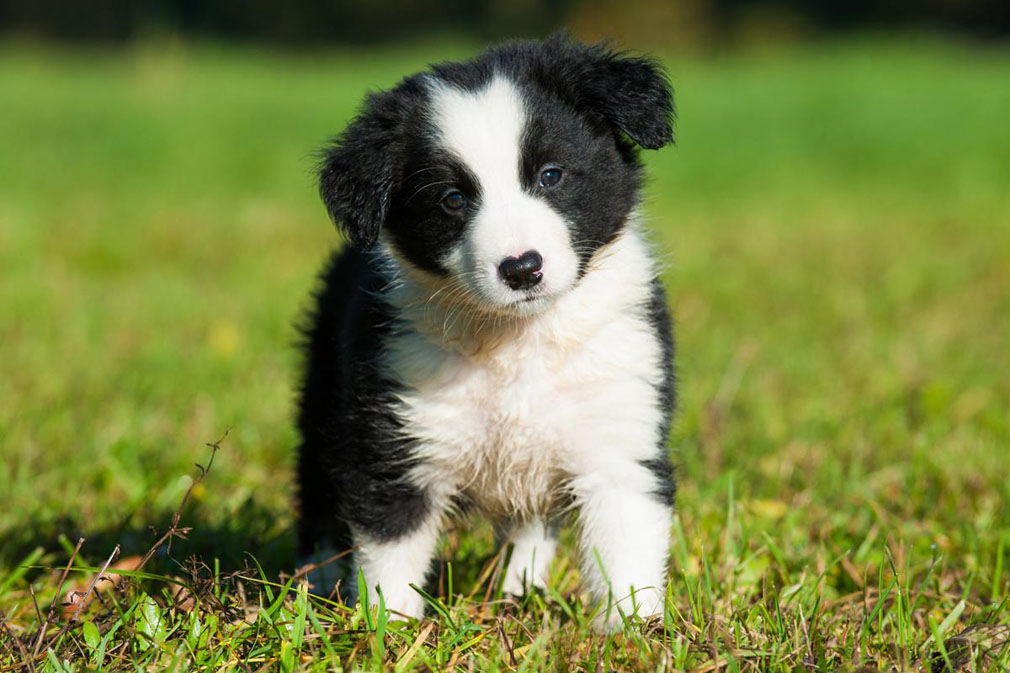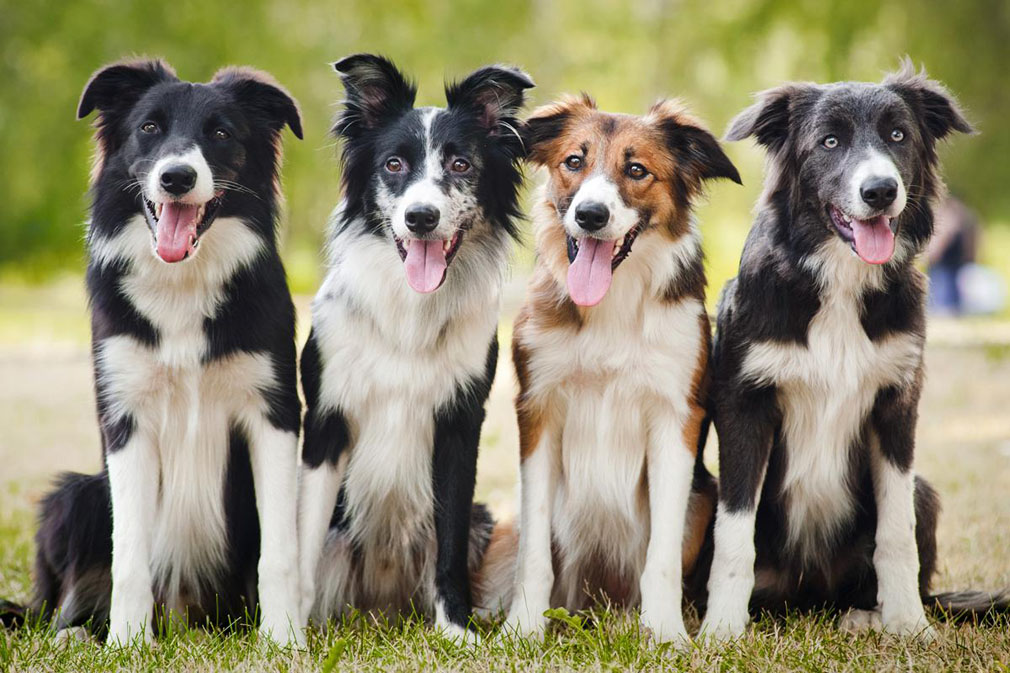Border Collie


 Puppy
Puppy
 Fully Grown
Fully Grown
Border Collies are highly intelligent working dogs that require lots of mental stimulation and a physical outlet. Due to their great looks, warm face and smarts, they are becoming more and more popular as family pets.
Owners of Border Collies need to be prepared to dedicate around 2-3 hours every day to physical and mental exercise. Border Collies are very quick learners and you will often find them doing brilliantly at dog sports like agility, nose work or fly ball. They are eager to please and will be happy to show off all the tricks and skills you teach them.
Border Collies like to be praised for their work and will always give 100%. They don't like any kind of negative feedback and punishment is very hard for them to digest.
Their chase and herding instinct is inbred and needs to be given a controlled outlet. They love chasing balls and would rather drop dead than stop chasing. If not given enough of a workout for their brain, Border Collies can develop behavioural issues like chasing lights and shadows to the point where they put themselves in danger.
| Weight: | 17-20 kg |
| Health risk: | Medium |
| Life expectancy: | 13-16 years |
| Coat: | Long |
| Grooming intensity: | Medium |
| Monthly cost (food): | Average |
| Trainability: | Very high |
| Activity level: | Very high |